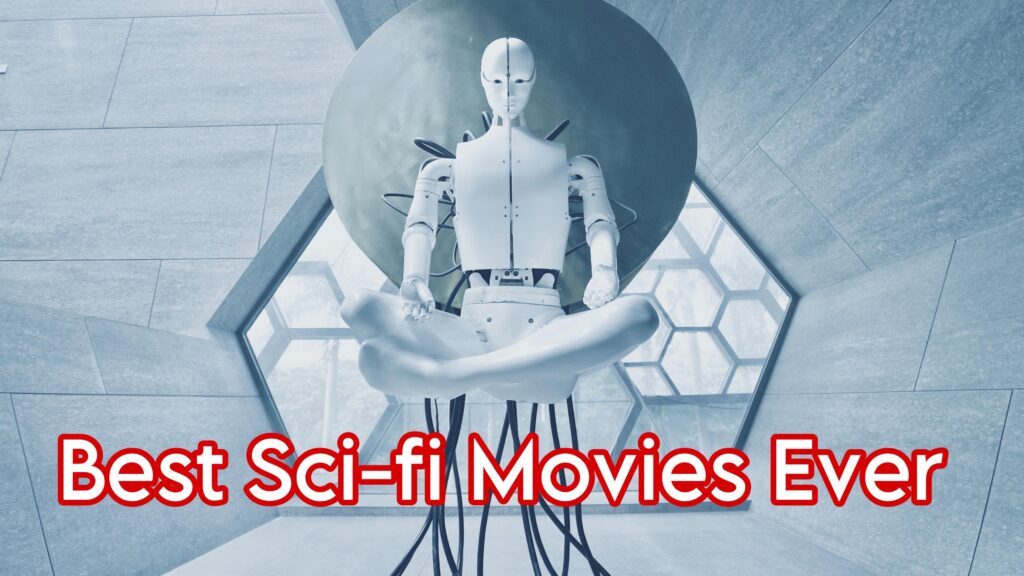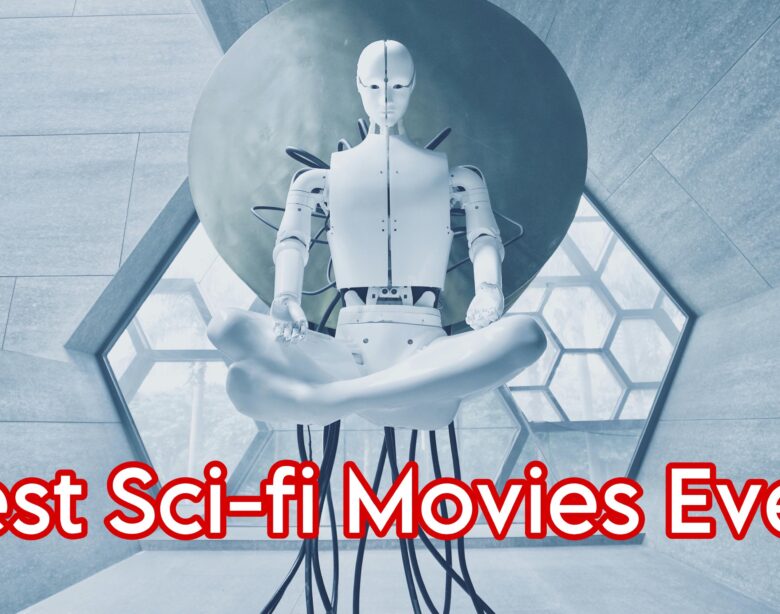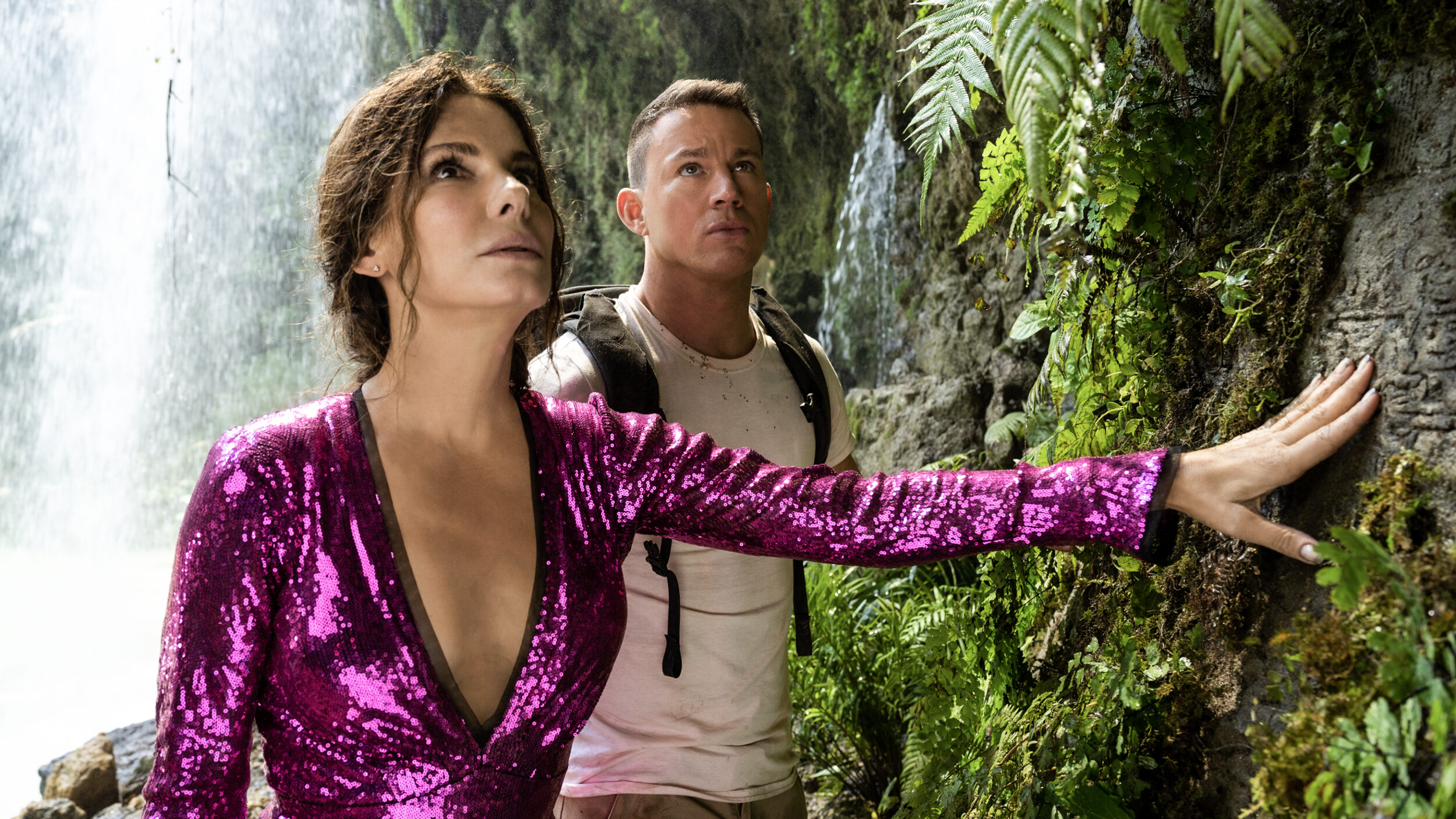Explore the top 10 science fiction movies that have redefined the genre, from the thought-provoking Blade Runner to the timeless epic Star Wars and the enigmatic 2001: A Space Odyssey.

In the realm of cinema, science fiction stands as a genre that has consistently pushed the boundaries of imagination and storytelling. From extraterrestrial encounters to journeys through time and space, sci-fi films have enthralled audiences with their ability to transport us to otherworldly realms and offer profound explorations of the human condition. With such a vast and diverse array of films in the sci-fi genre, creating a definitive list of the best ones can be a daunting task. Where does one even begin? And where should it end?
To embark on a journey through the annals of science fiction film history, one must pay homage to the pioneers—the films that laid the foundation for the genre’s evolution. Think back to 1927, when “Metropolis” graced the silver screen, pioneering groundbreaking visuals that would set a standard for all future urban dystopias. It’s no accident that the iconic aesthetics of “Blade Runner” bear a striking resemblance to Fritz Lang’s prophetic cityscape.
In 1953, “War of the Worlds” introduced us to gripping tales of alien invasions, adapted from H.G. Wells’ timeless novel. Then, in 1964, “Dr. Strangelove” cemented our fear of a nuclear holocaust like no film before or since. However, it was 1968 that marked a pivotal moment in cinematic history with the release of “2001: A Space Odyssey,” a film so influential that its name alone speaks volumes.
In this article, we embark on an exploration of the ever-evolving landscape of science fiction cinema. We present a selection of sci-fi movies that everyone should watch, ranging from the obscure gems that deserve recognition to the monumental works that have left an indelible mark on the genre. Join us as we traverse the galaxies of imagination and venture beyond the boundaries of reality, guided by these cinematic masterpieces. Just as you’re drawn into the enchanting world of sci-fi films, consider delving into our guides to the best sci-fi books of all time and the most captivating space movies, completing your odyssey through the cosmos of human imagination.
Top 10 Best Sci-Fi Movies of All Time
1. Blade Runner” (1982)

“Blade Runner,” directed by Ridley Scott, is undoubtedly one of the most influential science fiction movies of all time. Based on Philip K. Dick’s novel “Do Androids Dream of Electric Sheep?,” the film is set in a dystopian future, specifically in the year 2019. The world of “Blade Runner” is characterized by its dark, rain-soaked streets, massive skyscrapers, and advanced bioengineered humans known as replicants.
The film revolves around Rick Deckard, played by Harrison Ford, a retired police officer who is tasked with hunting down rogue replicants. What makes “Blade Runner” stand out are its stunning visual effects and its exploration of profound existential questions. The film raises fundamental queries about what it means to be human, the moral implications of creating life, and the consequences of technological advancement. The iconic “Tears in Rain” monologue by the replicant Roy Batty, portrayed by Rutger Hauer, remains one of the most poignant moments in science fiction film history.
“Blade Runner” has left a lasting legacy, not only in the world of cinema but in influencing other works of science fiction and shaping the cyberpunk subgenre. Its themes of identity, humanity, and the impact of technology on society continue to resonate with audiences and inspire filmmakers.
2. 2001: A Space Odyssey (1968)

Stanley Kubrick’s “2001: A Space Odyssey” is a cinematic masterpiece that transcends the boundaries of science fiction. Released in 1968, the film takes viewers on a visually stunning and philosophically profound journey through human evolution and the mysteries of the universe.
The film is divided into several chapters, each depicting a different stage in human history. From the discovery of a mysterious monolith on Earth to a journey to Jupiter aboard the spaceship Discovery One, “2001” explores themes of artificial intelligence, extraterrestrial life, and the evolution of humanity. One of the most memorable elements of the film is the sentient computer HAL 9000, which raises questions about the ethics of creating intelligent machines.
What sets “2001” apart from other science fiction films is its emphasis on visual storytelling and its willingness to leave many questions unanswered, inviting viewers to contemplate the mysteries it presents. The film’s groundbreaking special effects, iconic music by Richard Strauss, and enigmatic narrative have made it a cornerstone of the science fiction genre.
3. Escape From New York (1981)

“Escape From New York,” directed by John Carpenter, is a quintessential science fiction and dystopian film that embodies the essence of the genre. Set in the futuristic (for its time) year of 1997, the film portrays a war-torn America, with Manhattan transformed into a maximum-security prison. When the President’s plane crashes in this perilous territory, he is taken hostage by the notorious crime boss, the Duke, portrayed by Isaac Hayes. To rescue the President, the government turns to the enigmatic anti-hero, Snake Plissken, played by Kurt Russell, a former soldier turned criminal. Plissken is their last hope to retrieve the President and prevent a potential catastrophe.
Carpenter’s film masterfully combines science fiction elements with a dose of campiness, creating an enduring classic. The gritty and chaotic portrayal of a dystopian future, along with memorable characters and a captivating synth score, cements “Escape From New York” as a beloved staple of the genre.
4. The Matrix (1999)

Released at the end of the 20th century, “The Matrix,” directed by the Wachowskis, redefined science fiction and action cinema. The film’s cyberpunk aesthetics, intricate plot, and groundbreaking action sequences left an indelible mark on popular culture.
The story follows Thomas Anderson, also known as Neo, portrayed by Keanu Reeves, who discovers that the world he knows is a simulated reality created by machines to subdue humanity. Neo joins a group of rebels led by Morpheus, played by Laurence Fishburne, to challenge the machine overlords and awaken humanity to the real world.
“The Matrix” introduced the concept of a virtual reality world, the Matrix, and the iconic “bullet time” sequences that slow down time during action scenes. The film’s exploration of the blurred line between reality and illusion, as well as themes of artificial intelligence and the human spirit’s resilience, have made it a modern classic.
5. Star Wars: Episode IV – A New Hope (1977)

George Lucas’s “Star Wars: Episode IV – A New Hope” is a cultural phenomenon and a defining moment in science fiction cinema. Released in 1977, it transported audiences to a galaxy far, far away and introduced them to a world of Jedi knights, the Force, and epic space battles.
The film follows the journey of Luke Skywalker, portrayed by Mark Hamill, a young farm boy who becomes embroiled in a battle against the tyrannical Galactic Empire. With the guidance of the wise Obi-Wan Kenobi and the help of allies like Princess Leia and Han Solo, Luke sets out to destroy the Empire’s ultimate weapon, the Death Star.
“Star Wars” was groundbreaking in its use of special effects, creating a visual spectacle that had never been seen before. It also blended elements of classic hero’s journey narratives with a richly detailed and imaginative universe. The film’s impact extends far beyond the screen, having inspired a vast franchise of sequels, prequels, spin-offs, books, merchandise, and a dedicated fan base.
6. Solaris

“Solaris,” directed by Andrei Tarkovsky, is a thought-provoking science fiction film based on Stanisław Lem’s novel. The story revolves around Kris Kelvin, a psychologist portrayed by Donatas Banionis, who is sent to a space station orbiting the planet Solaris to investigate the inexplicable behavior of the resident scientists. Upon his arrival, Kelvin discovers the suicide of his friend, Dr. Gibarian, and a cryptic video attempting to explain the strange occurrences.
Tarkovsky’s approach combines the psychological depth of drama with mesmerizing visuals, resulting in a film that is emotionally absorbing and aesthetically captivating. The film delves into themes of memory, identity, and the impact of human emotions on reality, creating an introspective and intellectually stimulating narrative.
While Steven Soderbergh’s 2002 remake, starring George Clooney, garnered critical acclaim, Tarkovsky’s original “Solaris” remains a landmark in science fiction cinema. It is celebrated for its cerebral storytelling and its exploration of the human psyche in the context of space exploration, earning its place alongside other genre classics like “2001: A Space Odyssey.”
7. E.T. the Extra-Terrestrial (1982)

Steven Spielberg’s “E.T. the Extra-Terrestrial” stands as a heartwarming and family-friendly example of science fiction. Released in 1982, the film tells the story of a young boy named Elliott who discovers and befriends a stranded alien being, E.T.
What sets “E.T.” apart is its ability to capture the sense of wonder, curiosity, and innocence that comes with childhood. It explores themes of friendship, empathy, and the idea that understanding and compassion can transcend language and cultural barriers. The film’s iconic scenes, including Elliott and E.T. flying across the moon on a bicycle, have become enduring symbols of cinematic magic.
The film’s emotional depth, along with the powerful performances of its young cast, particularly Henry Thomas as Elliott, helped “E.T.” become a beloved classic that appeals to audiences of all ages.
8. Inception (2010)

Christopher Nolan’s “Inception” is a mind-bending exploration of dreams, reality, and the power of the human mind. Released in 2010, the film weaves a complex narrative that blurs the lines between dreams and reality.
The story follows Dom Cobb, portrayed by Leonardo DiCaprio, a skilled thief who specializes in entering people’s dreams to steal their secrets. He is offered a chance to clear his name and return home in exchange for a seemingly impossible task: planting an idea into someone’s mind through a process known as “inception.”
What makes “Inception” stand out is its intricate and non-linear storytelling. It challenges the audience to follow a multi-layered narrative that explores concepts of memory, the subconscious, and the power of ideas. The film’s visual effects, particularly the bending cityscape in the dream world, and its use of practical effects have set new standards for cinematic innovation.
“Inception” invites viewers to question the nature of reality and the power of the human imagination, making it a contemporary science fiction classic.
9. Metropolis (1927)

Fritz Lang’s 1927 silent classic “Metropolis” is a pioneering science fiction film that has left an indelible mark on the genre. While many sci-fi films have come and gone, “Metropolis” endures, in part because no definitive version of the film has been established since its Berlin premiere. The film, originally 2 hours and 33 minutes long, has seen various adaptations and scores, keeping it current throughout the years.
“Metropolis” was groundbreaking for its time, utilizing innovative miniatures and camera tricks to create a visually stunning futuristic city. It took two years to shoot and nearly bankrupted its producers. The film’s enduring appeal lies in its thematic content, offering a warning rather than a romantic narrative. It explores class conflict, portraying the stark divide between the privileged and the dehumanized proletariat, which resonates even today.
What’s most remembered about “Metropolis” is its extraordinary sequence involving Maria, a workers’ rights advocate, who is kidnapped and replaced by a sinister robot double. The film’s eerie portrayal of machinery and heavy industrialization underscores the human cost. “Metropolis” may have lost some of its original subplots over the years, but it remains a timeless tale that balances futuristic possibilities with a sharp focus on social justice and morality.
10. Eternal Sunshine of the Spotless Mind (2004)

“Eternal Sunshine of the Spotless Mind” (2004) is a sci-fi film directed by Michel Gondry and written by Charlie Kaufman. It offers a profound exploration of love, obsession, and the intricacies of romantic relationships. In a departure from his usual comedic roles, Jim Carrey plays Joel, a man who discovers that his ex-girlfriend Clementine (Kate Winslet) has undergone an experimental procedure to erase all memories of their time together from her mind. Distraught, Joel decides to undergo the same memory-erasing treatment, leading to a captivating and surreal erase-off.
The film masterfully blends elements of science fiction and surrealism with heartfelt vulnerability, offering a unique perspective on the complexities of human emotions and the fragility of memory. “Eternal Sunshine of the Spotless Mind” is a cerebral and emotionally resonant journey that delves into the intricacies of the heart, leaving a lasting impression on its audience.
Keep visiting The Times of Austin for latest news and updates. Follow us on Facebook, Twitter, and Instagram for regular updates.



